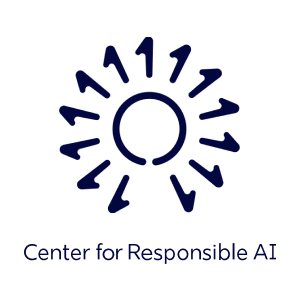The concept of business outsourcing has really taken center stage in recent years and the BPO industry has exploded as a result. BPO companies have started to take on crucial components of modern business for organizations of all types — allowing those clients to focus on their core competencies. However, this is only as powerful as the BPOs are efficient.
If you are a BPO, your business relies on streamlining and optimizing processes and workflows to deliver on this efficiency time and time again — so that you can create value for your clients. Alfredo Atanacio, writing in Forbes, articulated this well saying: “Many forward-thinking BPO organizations have managed to turn this period of disruption into an opportunity to evaluate and reinvent themselves, allowing them to be future-proof and resilient.”
In this article, we’ll explore some of the challenges that BPOs typically face in this regard and then look at a few productivity solutions that might be valuable in tackling them.
Key Challenges for BPOs
Here are some of the common challenges that BPOs tend to face:
- Aggressive SLAs. In order to compete in a highly competitive environment, BPOs will often sign aggressive SLAs to win the work. This creates a very small margin of error and if you can’t fine-tune your own internal processes accordingly then you can find yourself underdelivering on what you’ve promised.
- Tight Operational Margins. Building on the point above, BPOs typically have to remain very lean and operate under constrained operational margins. This means that if they experience unexpected problems or complexity, it can very quickly eat into their profitability.
- High Staff Turnover. BPOs tend to suffer from a higher than average staff turnover rate because of the nature of the industry itself. This means that you’re consistently trying to train new people and integrate team dynamics while still portraying a robust and stable company to your clients. This can be exhausting and resource-intensive, not to mention the lost potential when a talented person leaves the organization.
- Need to Build Productivity Solutions From Scratch. For every new client, a BPO typically needs to start again and build productivity solutions from scratch because of the variability and unique characteristics that come with every new organization. This means that a lot of work has to go in upfront to then benefit from the productivity solutions on the back end.
- Efficiency Takes a Long Time. Building systems that can achieve true efficiency can often take a long time. For example, in order to achieve just a 20% improvement in support ticketing efficiency, it can often take up to 12 months. You need to be able to handle these long time frames and manage expectations with clients if you are to deliver on long-term success.
As you can see, there are a vast number of different challenges that a BPO faces when trying to deliver value for a client. If they aren’t able to optimize their own internal systems to do so effectively, they will always be behind the curve.
The solutions for these challenges all lie in automating routine processes and workflows wherever possible to speed up your responses and free up your team’s time to focus on higher-value tasks. For example, research from McKinsey suggests that the digitization of business process outsourcing is one of the most important trends that we’re likely to see in 2022.
One of the ways that BPO organizations can accelerate this transition is by leveraging the latest in artificial intelligence (AI).
How AI Automation Can Supercharge Your Productivity
AI systems can make a huge difference when they’re implemented effectively — because of the leverage and efficiency they bring as part of the package. Here are some of the ways that AI can supercharge a BPO’s productivity:
- Automating Support Tickets. The process of helping clients and maintaining relationships can be extremely resource-intensive without advanced technology. AI helps to automate a lot of the more routine customer service, allowing your team to focus on the more complex and sophisticated use cases, knowing that the mundane ones are already taken care of at scale.
- Managing Online Communities. Nurturing your company’s communities on social media and other channels is another task that is crucially important, but takes a lot of dedicated time and effort. AI can help you triage the inputs that you’re receiving, automate the simple ones, and consolidate the others to allow your team to maximize your impact while minimizing the time required.
- Better Decision Making. AI is incredibly valuable when it comes to making data-driven decisions in a highly precise and accurate way. By spotting patterns and quirks in the data, it can help to optimize your day-to-day decision-making so that your business can get to the next level.
As you can see, when you leverage tools like this, you can achieve highly scalable efficiency gains that compound over time. These systems also improve your employees’ experience because they can focus on the things that truly add value, leaving some of the more mundane and tedious tasks behind. As a result, you’re likely to see less turnover and a better overall culture for your team. All of this while also creating a much better experience for your clients.
Artificial intelligence is here to stay and if your BPO organization is looking to transform itself for the next revolution, now is the time to get started.






